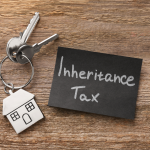How Inheritance Tax could impact your pension
The UK’s Self-Invested Personal Pension (SIPP) sector is facing a significant shift.
Proposed changes to inheritance tax (IHT) rules could see unused pension funds included in estates from April 2027—potentially subjecting them to IHT for the first time.
While these changes are not yet law, the implications are serious enough that advisers and pension scheme members should begin preparing now.
A Sector on the Rise
SIPPs have become a cornerstone of UK retirement planning, with over £567 billion in assets under management and around 5.3 million customers. Growth in the sector has been robust, driven by flexibility and control over investments.
But that success could be tempered by the proposed IHT changes. According to government estimates, in the 2027/28 tax year alone:
- 10,500 estates could become newly liable for IHT due to unused pension funds.
- 38,500 estates may face higher IHT bills.
- Over three years, the changes could generate £3.44 billion in additional IHT receipts.
Double Taxation Risk
Under current rules, unused pension funds can be passed on tax-free if the scheme member dies before age 75. After 75, beneficiaries pay income tax on withdrawals.
The proposed changes would add IHT to the mix—meaning some pension pots could be taxed twice: once as income and again as part of the estate on death.
This is particularly concerning for clients with illiquid assets such as commercial property. Around £9 billion of SIPP assets are invested in property and other non-liquid holdings.
Many individuals have used SIPPs to purchase business premises, which could be difficult to sell quickly to cover IHT liabilities.
HMRC has indicated it will consider asset liquidity when collaborating with personal representatives or family, potentially offering payment plans. But the burden of settling IHT before distributing estate assets remains.
Time to Rethink Strategy
Clients who planned to leave their SIPPs to family or friends may need to reassess their investment strategies. Long-term growth may no longer be the most tax-efficient approach.
Some may consider drawing income at lower tax rates and gifting or spending it to reduce estate value. However, if the income is retained, it could still be subject to IHT negating the benefit.
Importantly, this is not just a concern for the wealthy. A person saving £10,000 annually into a SIPP over 20–30 years could easily accumulate a pension pot large enough to trigger IHT when combined with other assets.
An Opportunity for Advisers
For financial advisers, the proposed changes present both a challenge and an opportunity. Clients will need expert guidance to navigate the new landscape, and advisers who offer technical insight and initiative-taking service will be in high demand.
Providers must also step up, offering tools and projections to help clients understand the potential impact on their retirement plans. Digital modelling and clear communication will be key.
Failure to inform clients could even lead to complaints if unexpected tax bills arise. The message is clear: advisers and providers must act now—not wait until the rules take effect.
Conclusion
The proposed IHT changes are a wake-up call for the pensions industry. While they present real challenges, they also offer a chance for advisers to demonstrate value, deepen client relationships, and guide individuals through complex financial decisions.
In a sector built on long-term planning, now is the time to think ahead.
Disclaimer
The content of this article is for general information purposes only and should not be construed as legal, financial or taxation advice. You should not rely on the information contained in this article as legal, financial or taxation advice. The content of this article is based on information currently available to us, and the current laws in force in the UK. The content does not take account of individual circumstances and may not reflect recent changes in the law since the date it was created. It is essential that detailed financial and tax advice should be sought (as well as legal advice where required) in both the UK and any jurisdiction where you are resident.
iPensions Group Limited is authorised and regulated by the Financial Conduct Authority, Licence Number 464521.




